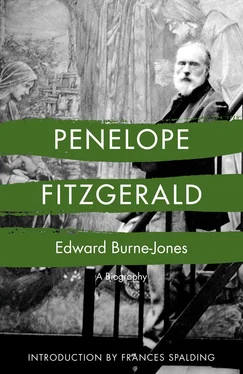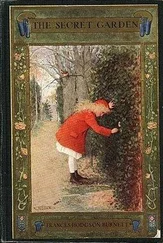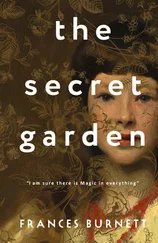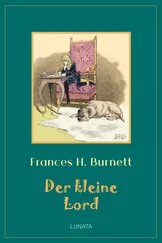This, of course, meant Oxford, although most of the Upper School boys went on to Cambridge. Dixon was ready to matriculate and Crom Price, two years younger, hoped to follow them. Both of these were down for Pembroke, where the master, Dr Jeune, was a former headmaster of King Edward’s, but Goss had been at Exeter, and for Exeter, therefore, Mr Jones put down his son. When he found that Ned, unlike Dixon, had not been awarded an exhibition, he faced a total payment, over the three years before an honours degree, of about £600. There would be tuition fees of about £20 per annum, coals, room-rent, hire of furniture, charges for servants (about £30 a term), kitchen bill, buttery bill (for bread, butter and beer), washing bill, college subscriptions; even the travelling expenses to Oxford were a consideration. With heaven knows what further economies and calculations, Mr Jones ‘determined to send him at his own expense’. The Bennett’s Hill house was let, except for the workshop, and a smaller house taken, where Miss Sampson and the furniture accompanied them, father and son shared a bedroom as usual, and a lodger was squeezed in as well. This was in the Bristol Road, which the Memorials tell us ‘provided better air and exercise’, though in fact the drains at this time ran into open ditches on the west side.
Ned matriculated on 2 June 1852. He had his first sight of the city of Oxford, the river, and the meadows. Excitement, and possibly some guilt at the sacrifices made for him, brought on a severe illness, the first since he had nearly died at birth, but one which was to set a pattern for the rest of his life – heart weakness, spectacular fainting, a black depression on recovery. Harder to bear, at the age of nineteen, was delay; he would have to wait till the following spring before there was room for him in the overcrowded college.
Kicking his heels in Birmingham, he went to call for the first time on his school friend Harry Macdonald, and so met the family where, a few years later, he would find his wife. They were then living in a house in Nursery Terrace, Handsworth, the Rev. George Macdonald having been recently appointed for the second time to the Birmingham circuit.
In 1852 the minister’s house was crowded from attic to cellar. The children at home were Harry, Alice, Carrie, Georgie, Fred, Agnes (the prettiest) and Louisa. They had already lost two little brothers, and had gone upstairs to see one of them ‘stamped with the marble hue of death’; Carrie had only two more years to live.
Their story (as it is told by their descendant Lord Baldwin in The Macdonald Sisters ) is of an unworldly preacher bringing up, or rather letting his wife bring up, a large family on a tiny income, sometimes less than £200 a year, so that to buy a book or to have the piano tuned was a heroic event. This, however, was never felt as poverty, and the affection between the sisters was very close. They all had in common integrity and decisiveness – William de Morgan said that they never began a sentence without knowing how it would end. Visitors who were in the least pretentious were cut short. Lord Baldwin records that a preacher who spoke of his heart as ‘black, and full of stones’ was told by little Louie that he must mean his gizzard. This firmness went with a tendency to melancholy and poor health. What redeemed it, besides its own moral purity, was a dry sense of humour and an acceptance of the ‘stages of life’, which implied a reverence for life itself.
Such unworldliness, combined with sharpness, could alarm casual visitors. Ned shrank. But the praying, singing, cooking, sewing, turning, boot-patching, ‘putting-up’ of preserves, making do, giving charity, racing up and down stairs, self-criticising and self-improving could make way at once for a lonely visitor. Ned, although he called with Crom Price, could be seen at once as lonely. To Georgie, a child in a pinafore, his pallor and delicacy suggested that he needed looking after. Georgie, at the age of ten, was quite used to this. She noticed also an unexpected source of power in him, like an illumination, when the conversation moved him.
How Burne-Jones – the Memorials are ‘confident that the mystery which shrouds men and women from each other in youth was sacred to him’ – dealt with his own growing sexuality can hardly be judged. He referred to it only ironically, for example, in reference to a visit to the theatre when he was staying at the Camberwell home of his father’s sister, Aunt Catherwood. Mr Catherwood took him to the Lyceum pantomime, where they stood in the pit and Ned fell hopelessly in love with the probably forty-year-old Fairy of the Golden Branch. ‘She held out something, and I thought it was too beautiful ever to be.’ But this was not surprising, since the Fairy – supported by Blueruino, an Illicit Spirit – was none other than Madame Vestris herself. Complementary to these fantasies was the very strong reaction of a sisterless young man, in the presence of young girls en fleur , on the verge, some sooner, some later, of a natural but despoiling experience. This, which was to be one of the recurrent themes of his painting, took its origin from the daughter-crowded minister’s house in Nursery Terrace.
In the Hilary Term of 1853, Burne-Jones finally went up, and passed from the small shop and the grimy streets of Birmingham to Newman’s own university.
Конец ознакомительного фрагмента.
Текст предоставлен ООО «ЛитРес».
Прочитайте эту книгу целиком, купив полную легальную версию на ЛитРес.
Безопасно оплатить книгу можно банковской картой Visa, MasterCard, Maestro, со счета мобильного телефона, с платежного терминала, в салоне МТС или Связной, через PayPal, WebMoney, Яндекс.Деньги, QIWI Кошелек, бонусными картами или другим удобным Вам способом.












